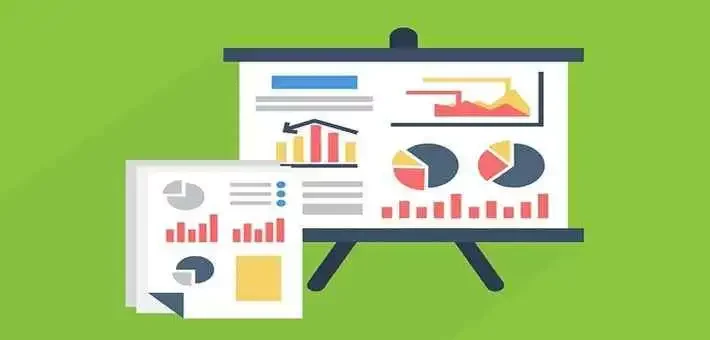More MCQs
HOME
Categories
Courses
Business Management MCQs
Fundamentals of Economics MCQs
Demand and Supply Elasticities MCQs
Utility Analysis Economics MCQs
Costs Revenues and Firms economics MCQs
Consumption Savings and Investment MCQs
Multiplier and Accelerator Economics
Economic Growth and Taxation MCQs
Economics Monetary Policy MCQs
Money and Credit economics MCQs
Macroeconomics MCQs
Macroeconomics is the study of decisions that people and businesses make regarding the allocation of resources and prices of goods and services. Here on MCQs.club we have prepared Multiple Choice Question (MCQs) on Introduction to macroeconomics that fully cover the principles of macroeconomics, macroeconomics examples/meaning/policy/theory/for dummies/ basic macroeconomics. These macroeconomics lessons are useful for Professional accountancy exams, Business management exams, competitive exams.
- Macroeconomics –
- It is the study of decisions that people and businesses make regarding the allocation of resources and prices of goods and services.
- It is the field of economics that studies the decisions of individuals, firms and countries in the aggregate (in total).
- Both A&B
- None
- Most governments macroeconomic objectives which would be generally expected to be beneficial to the population. From the following identify such objectives:
- Economic growth: This would increase the wealth of the country and hopefully the standard of living of the population.
- Low price inflation: Most population accept that a certain level of inflation is desirable but high inflation erodes wealth and reduces consumer confidence.
- Equilibrium in the balance of payments.
- All of the above
- Macroeconomics is concerned with questions like:
- What causes the economy to grow over time?
- What are the key economic indicators that should be tracked to provide information on the health of the economy and the result of government action?
- What causes fluctuations in an economy and how can they be managed?
- All of the above
- To encourage growth in the economy, which of the following policies Governments might instigate?
- A government might reduce interest rates.
- A government might invest in technical education in order to provide a work force which would allow expansion in certain industries.
- Both A&B
- None
- Measures used to measure the size of an economy include:
- National income
- Gross domestic product
- Gross national product
- Net national product
- All of the above
- National income –
- It is the monetary value of the flow of goods and services produced by the economy during the year, after indirect taxes.
- It is the amount of all products that any society produces using its land, labour, physical capital and human capital.
- It is equal to the sum of money values of all consumption and investment goods, along with government purchases.
- All of the above
- Difficulties in measuring national income include:
- Lack of trained staff
- Illiteracy/unreliable record keeping
- Inadequate information caused by poor collection procedures
- All of the above
- Measures of national income can be used to make:
- Single country comparisons
- International comparisons
- Both A&B
- None
- Problems in using national income figures to compare countries include:
- Differences in classification of activities between countries
- Differences in the extent to which they rely on the market to provide services and goods
- Exchange rate distortions harm comparability of figures
- Different accounting conventions
- Different climates e.g. hot countries spend less on heating and clothing than cold ones yet their standard of living is unaffected.
- All of the above
- (II) and (V) only
- (III) and (IV) only
- None
- Gross Domestic Product (GDP) –
- It is the market value of all the products, goods and services, which are produced within a country during a selected time.
- GDP is the aggregate demand in an economy.
- GDP per capita is often considered an indicator of a country’s standard of living, though it is not a measure of personal income.
- All of the above
- The GDP is the total output from all of the sectors of an economy including:
- Primary sector (agriculture, mining etc.)
- Secondary sector (manufacturing and construction)
- Tertiary sector (services)
- All of the above
- GDP does not include services and products that are produced by the nation in other countries. GDP measures products only produced inside a country’s borders.
- True
- False
- The GDP for a particular year is measured by:
- Nominal GDP
- Real GDP
- Both A&B
- None
- Which of the following is true for Nominal GDP?
- It is the value of GDP evaluated at current prices in a specific time period, this includes the impact of inflation and is normally higher than the GDP
- It is an inflation adjusted value of GDP. It expresses the value of goods and services produced in a country in base-year prices.
- Both A&B
- None
- Which of the following is true for Real GDP?
- It is the value of GDP evaluated at current prices in a specific time period, this includes the impact of inflation and is normally higher than the GDP
- It is an inflation adjusted value of GDP. It expresses the value of goods and services produced in a country in base-year prices.
- Both A&B
- None
- Gross National Product (GNP) –
- A country’s GDP, plus any income earned by residents from overseas investments, minus income earned by overseas residents within the domestic economy
- GNP is the production of the citizens of a country only, wherever they are located.
- Both A&B
- None
- Which of the following is true for “Personal Income”?
- Personal income is the aggregate of income received by individuals and companies that are not corporations.
- This include retained earnings of corporations, and corporate income taxes.
- Both A&B
- None
- Which of the following is true for “Disposable personal income”?
- This is concerned with the actual amount of money that individuals on aggregate have the ability to spend within an economy.
- Personal income minus government obligations (taxes)
- Both A&B
- None
- In Circular flow of income “withdrawals” at various junctures include:
- Savings, Taxation, Imports
- Investments, Government spending, Exports
- Both A&B
- None
- In Circular flow of income “Injections” at various junctures include:
- Savings, Taxation, Imports
- Investments, Government spending, Exports
- Both A&B
- None
- National income equilibrium is reached not only by the equality of aggregate demand and aggregate supply but also the planned withdrawals from the flows of national income must also be equal to planned injections into the circular flow of national income i.e. withdrawals = Injections
- The above statement is correct
- The above statement is incorrect
- Product/ output approach of finding National income –
- This method finds National Income by adding the net values of all production that has taken place in all sectors during a given period.
- The total value of final goods and services produced during the year.
- Both A&B
- None
- Income approach of finding National income –
- The total value of all the incomes earned from producing goods and services during the year.
- This method measures the National Income after it has been distributed and appears as income earned or received by individuals of the country.
- This method estimates National Income by adding up the rent of land, wages of employees, interest and profit on capital and income of self-employed people.
- All of the above
- The Income approach of finding National income calculation does not include:
- Transfer Payments
- Income gained from stock appreciation.
- Income not declared to the tax authorities
- All of the above
- Income approach of finding National income –
- The expenditure approach involves counting the expenditure in the economy on goods and service, by different groups of people.
- The total value of expenditure on purchasing final goods and services during the year.
- This is measured by adding up the expenditure that has happened in the country, and includes: household consumption, government expenditure on consumables, export demand.
- All of the above
- Which of the following is true for “Aggregate supply”?
- The total supply of goods and services produced within an economy at a given overall price level, in a given time period.
- This is represented through an aggregate supply curve
- The relationship between aggregate supply and price is often a positive one.
- All of the above
- In the short run, the aggregate supply curve____________.
- Slopes downwards
- Slopes upwards
- Is flatten
- None
- What causes the shift forwards or backwards in short run aggregate supply?
- Change in factor productivity of both labour and capital
- Change in size and quality of capital stock, through investment
- Change in size and quality of the labour force
- Change in unit cost of labour (i.e. wages)
- Change in producer taxes or subsidies
- Change in inflationary expectations
- All of the above
- (I) and (III) only
- (I) (III) and (IV) only
- None
- Long Run Aggregate Supply (LRAS) –
- In the long run, aggregate supply is assumed to be independent of price, and is therefore vertical.
- It is determined by the overall productivity of the resources in the economy.
- Both A&B
- None
- Which of the following is true for “full employment”?
- The point at which all factors of production are fully utilised in an economy.
- The point where the AS curve goes vertical is also known as the level of full employment.
- Both A&B
- None
- Which of the following is true for “Aggregate demand”?
- The total amount of goods and services demanded within an economy at a given overall price level, and in a given time period.
- The relationship between aggregate demand and price is often a negative one.
- The aggregate demand curve is downward sloping
- All of the above
- What would cause a shift out of the aggregate demand curve:
- Consumers have more income and begin spending more in the economy
- Firms have a wave of optimism and begin in investment in projects
- Government decides to spend more on infrastructure projects
- Exports become more attractive to foreign firms
- Imports become less desirable for domestic firms
- All of the above
- (I) and (Iv) only
- (II) (III) and (V) only
- None
- Which of the following is true for “Effective demand”?
- Actual expenditure in an economy is based on existing/ actual income
- This asserts that agents in an economy will only make expenditures with a percentage of their income.
- Both A&B
- None
- Which of the following is true for “Output gap”?
- The difference between the actual output of an economy and the production potential of an economy is known as the output gap.
- The difference between potential GDP and actual output in an economy.
- There can be both negative and positive output gaps.
- All of the above
- Which of the following is true for “Inflationary gap”?
- It is where when the equilibrium in the macroeconomy is beyond the productive potential.
- It can be thought of as an excess in planned expenditure in an economy.
- Both A&B
- None
- Which of the following is true for “Deflationary gap”?
- It is where when the equilibrium in the economy is less than the production potential.
- The difference between potential GDP and actual output in an economy.
- Both A&B
- None
—More to come soon—




